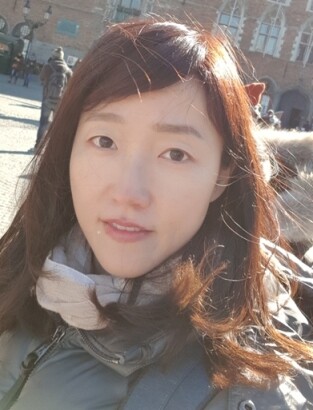hankyoreh
Links to other country sites 다른 나라 사이트 링크
[Column] South Korean government needs to take charge of humanitarian assistance to North Korea

If the inter-Korean summit scheduled for Apr. 27 bears fruit, the Korean people may at long last look forward to a day when the threat of catastrophic military confrontation in their homeland is replaced by a long-awaited peace. Yet sadly, even the most optimistic outcome for the upcoming summit will come too late for many North Koreans whose deaths could have been prevented, had sanctions not devastated humanitarian aid programs.
The recent termination of the Global Fund’s tuberculosis and malaria programs at a time when the numbers of multidrug-resistant TB patients is increasing is just one example of the crisis in humanitarian aid to North Korea. Reducing or eliminating assistance, particularly when related to deadly illnesses like tuberculosis and malaria, virtually guarantees that thousands of North Korean people will succumb unnecessarily to fatal contagious diseases.
To prevent this from happening, Seoul and Pyongyang should take this unique opportunity to depoliticize humanitarian aid exchanges and to open a safe and secure ‘humanitarian aid corridor’ between North and South. Turning the ROK into a base for national and international humanitarian aid programs for needy North Koreans would save countless lives as well as have other long-lasting benefits. Protecting human life-related exchange programs from being sacrificed is also the best way to build the trust needed for lasting peace on the Korean peninsula.
Humanitarian assistance programs to North Korea, in fact, are dying a ‘death of a thousand cuts.’ Many organizations report that donors are increasingly reluctant to provide support for their North Korean initiatives. Even when funding is available, banks, shippers and suppliers based in the US, Europe and Asia increasingly regard anything having to do with North Korea as dangerous.

Based on Eugene Bell’s experience, people who are reluctant to become involved in transactions related to North Korea do not necessarily harbor hostile feelings toward the North Korean government. Instead, most are afraid that the US government might punish their company for doing something that they did not even know was wrong. Even the most well-meaning people are inclined to act defensively when they fear one mistake might result in having their bank account frozen and their assets confiscated.
Concern about US government retaliation even extends to government ministries, particularly those tasked with controlling exports. For example, customs officials are inclined to over-enforce sanctions regulations prohibiting certain raw materials like metal and to prohibit shipments of manufactured items that contain even a trace of banned substances. Sanctions against bulk shipments of metallic ore, thus, can metamorphosis into a ban on stainless steel chopsticks.
Although Eugene Bell is still able to ship disposable shot syringes, many of the hundreds of items needed to sustain our multidrug resistant (MDR) TB treatment program long-term are now impossible to transport to North Korea. All of this comes at a time when we should be expanding patient housing at our twelve treatment centers so as to enroll more patients. Now that the Global Fund is withdrawing from North Korea, we are faced with a crisis far beyond our capacity to address. Fortunately, the Republic of Korea can play a pivotal role in solving the nascent emergency in tuberculosis care in North Korea. According to internationally recognized codes of conduct, food, medicine, shelter and other types of basic human necessities are supposed to be exempt from sanctions and other forms of economic warfare. This ideal, however, rarely translates into practice.
For the past decade, two ROK administrations attempted to ‘punish’ North Korea, not only by closing high-profile joint ventures such as the Kaesong Industrial Complex, but also by denying South Korean NGOs permission to provide assistance to people in the North. This use of humanitarian aid as a weapon in a game of ‘carrot and stick’ proved not only ineffective in achieving anything worthwhile but also reflected poorly on South Korean society as a whole by giving the false impression that foreigners cared more about suffering North Koreans than their South Korean compatriots. Thankfully, this misbegotten policy has been repudiated by the Moon administration. Nevertheless, sanctions continue to reduce and restrict humanitarian assistance to needy people in the North.
The humanitarian aid crisis in North Korea is an opportunity for the Republic of Korea to reaffirm the universal principle that humanitarian aid should be exempt from political considerations, so long as it addresses basic human needs in a transparent and effective manner. Seoul should use its role as an emerging donor to push organizations like the Global Fund to expand, rather than close their programs in North Korea. Indeed, if aid organizations were welcomed to Korea and could source and ship supplies from the ROK through a humanitarian aid corridor linking South and North, the current humanitarian crisis would soon end.
Not only would these initiatives save lives, but they would also take the control over North Korea-bound humanitarian assistance out of the control of foreigners and place it in the hands of Koreans. As the lives of Koreans are at stake, it makes more sense if South Koreans lead the international effort to help them.
Tuberculosis aid to North Korea was inadequate even before the Global Fund terminated its program. Both Eugene Bell’s and the Global Fund’s combined programs provide medications for less than 20% of North Korean multidrug-resistant tuberculosis patients. A Korean-controlled effort could ensure that all North Koreans diagnosed with MDR-TB had access to good-quality medications and a chance to recover. Because it is an airborne disease, treatment of all patients is the only way to stop it from spreading.
‘Koreanizing’ the purchase and shipment of tuberculosis medicine and other forms of humanitarian assistance would also remind the world that Korea’s interests in tensions on the peninsula are comprehensive, rather than limited to a single global strategic objective. Finally, making the ROK a ‘safety zone’ for humanitarian aid would remind people in the South as well as the North that all Koreans should unite in fulfilling their moral and ethical obligations to fellow Koreans who desperately need their assistance.
In the final analysis, finding common ground and building trust in the hearts of the Korean people is the only real solution to the security as well as the humanitarian crisis on the Korean peninsula. Russia is still fighting a MDR-TB epidemic that was ignited during the collapse of the former Soviet Union. This suggests that no matter what the outcome of the summit, unless it results in a comprehensive humanitarian aid strategy, Koreans could also be faced with an infectious disease epidemic that will take decades to bring under control. This is why taking charge of humanitarian aid assistance should be a priority topic in the upcoming summit.
By Stephen W. Linton, Chairman/Eugene Bell Foundation and Choi Seemoon, Advocacy Manager /Eugene Bell Foundation
Please direct questions or comments to [english@hani.co.kr]

Editorial・opinion
![[Column] Has Korea, too, crossed the Rubicon on China? [Column] Has Korea, too, crossed the Rubicon on China?](https://flexible.img.hani.co.kr/flexible/normal/500/300/imgdb/original/2024/0419/9317135153409185.jpg) [Column] Has Korea, too, crossed the Rubicon on China?
[Column] Has Korea, too, crossed the Rubicon on China?![[Correspondent’s column] In Japan’s alliance with US, echoes of its past alliances with UK [Correspondent’s column] In Japan’s alliance with US, echoes of its past alliances with UK](https://flexible.img.hani.co.kr/flexible/normal/500/300/imgdb/original/2024/0419/2317135166563519.jpg) [Correspondent’s column] In Japan’s alliance with US, echoes of its past alliances with UK
[Correspondent’s column] In Japan’s alliance with US, echoes of its past alliances with UK- [Editorial] Does Yoon think the Korean public is wrong?
- [Editorial] As it bolsters its alliance with US, Japan must be accountable for past
- [Guest essay] Amending the Constitution is Yoon’s key to leaving office in public’s good graces
- [Editorial] 10 years on, lessons of Sewol tragedy must never be forgotten
- [Column] A death blow to Korea’s prosecutor politics
- [Correspondent’s column] The US and the end of Japanese pacifism
- [Guest essay] How Korea turned its trainee doctors into monsters
- [Guest essay] As someone who helped forge Seoul-Moscow ties, their status today troubles me
Most viewed articles
- 1[Column] The clock is ticking for Korea’s first lady
- 2After 2 months of delayed, denied medical care, Koreans worry worst may be yet to come
- 3[Column] Has Korea, too, crossed the Rubicon on China?
- 4Hong Se-hwa, voice for tolerance whose memoir of exile touched a chord, dies at 76
- 5US overtakes China as Korea’s top export market, prompting trade sanction jitters
- 6[Correspondent’s column] In Japan’s alliance with US, echoes of its past alliances with UK
- 7All eyes on Xiaomi after it pulls off EV that Apple couldn’t
- 8[News analysis] After elections, prosecutorial reform will likely make legislative agenda
- 9Samsung barricades office as unionized workers strike for better conditions
- 10More South Koreans, particularly the young, are leaving their religions